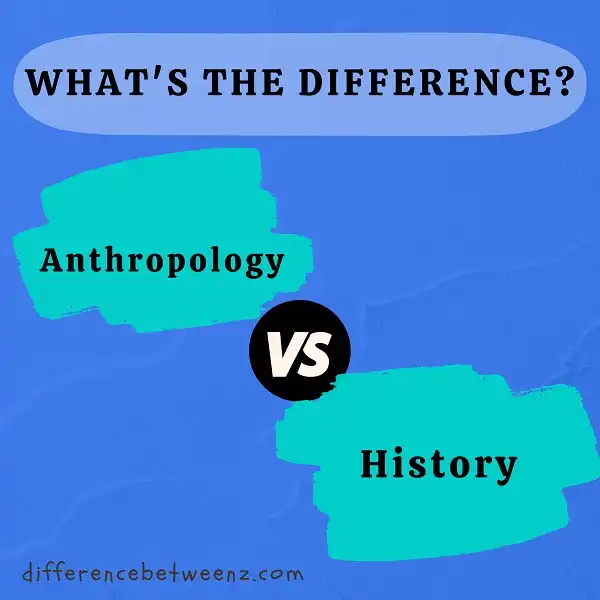Anthropology and history are both integral parts of understanding the human experience, but they differ in their focus and approach. Anthropology looks at humans as a whole, while history focuses on specific events and time periods. Anthropology employs a holistic perspective, while history relies on evidence and fact-based analysis. The two fields provide different but complementary insights into human culture and behavior.
What is Anthropology?
Anthropology is the study of human culture and behavior across time and space. This interdisciplinary field draws on a wide range of academic disciplines, including history, sociology, linguistics, philosophy, and the natural sciences. By analyzing historical documents, conducting ethnographic research in different communities and cultures, and examining social patterns across space and time, anthropologists seek to understand the complexity of human society. Whether examining issues of race, gender, or class; exploring life in hunter-gatherer societies or complex urban centers; or studying past civilizations or contemporary globalization processes, Anthropology provides insights into our past, present, and future. Thus, Anthropology is not only an invaluable tool for understanding ourselves as individuals and members of society but also a crucial lens for grappling with the challenges facing humankind in the 21st century.
Why do we study anthropology?
Anthropology is a fascinating and diverse field of study, with a wide range of sub-disciplines that focus on topics such as human behavior, migration patterns, cultural traditions, language, and social relationships. But why do we study anthropology? There are several reasons. First and foremost, anthropology is an inherently interdisciplinary field that draws from the natural sciences, psychology, history, and other fields to help us better understand ourselves and our world. Moreover, anthropology not only provides valuable insights into the past, but also offers key insights into contemporary issues such as sustainability, globalization, inequality in wealth and health outcomes, and many other important topics. Ultimately, anthropology helps us to better understand the complex factors that shape our shared experience as human beings. Whether you are interested in the history of human civilizations or the patterns behind everyday interactions between individuals and groups around the globe, studying anthropology can help you gain a deeper understanding of who we are as a species and where we may be headed in the future. So why not give it a try? You might just be surprised at what you learn!
What is History?
What is history? This question has been asked by people for centuries, and there is no simple answer. In its broadest sense, history is the study of the past. This includes everything from the study of ancient civilizations to the events of last week. However, history is more than just a list of dates and facts. It is also the study of the people, cultures, and events that have shaped our world. By understanding history, we can gain a greater understanding of the present and the future. What is history? It is the story of our world, and it is waiting to be discovered by everyone who cares to look.
How can history help us understand the past?
history is the study of the past, which can be defined as the study of the human past. There are many different ways to approach history, and it can be used to learn about everything from politics and culture to economics and social change. history can also be used to help us understand why certain events happened and how they have affected the present. In addition, history can provide context for current events and help us make sense of the world around us. As such, history is an essential tool for understanding the past and shaping the future.
Difference between Anthropology and History
Anthropology and History are both disciplines that study the past. However, they have different approaches. Anthropology is the study of human societies and cultures. It looks at how people interact with each other and how they change over time. History, on the other hand, is the study of specific events that have shaped the world. It focuses on political, economic, social, and cultural developments. Both Anthropology and History are important fields of study. Anthropology can help us to understand the present by providing insights into human behavior. History can give us a better understanding of the present by showing us how the past has shaped the world.
Conclusion
Anthropology and history are both important academic disciplines, but they have different focuses. Anthropology is the study of human beings in their natural environment, while history looks at past events. Both fields can provide valuable insights into human behavior, but it is important to understand the distinctions between them when selecting a discipline for research or study.


